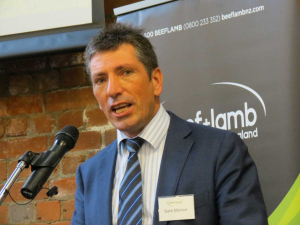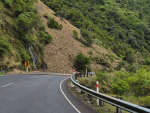Research commissioned by Federated Farmers and Beef + Lamb New Zealand (B+LNZ) found that 54% of Kiwis support a limit on the amount of fossil fuel emissions that can be offset with new pine forests.
Meanwhile, almost two thirds of New Zealanders oppose foreign companies buying New Zealand farms to offset their emissions.
The findings by Curia coincide with the release of a new report by Orme & Associates, commissioned by B+LNZ, which shows more than 52,000ha of land was purchased by forestry interests in 2021, a 36% increase on the previous two years, and up 7,000ha in 2017.
That’s more than twice the 25,000ha a year of exotics the Climate Change Commission has suggested are required to achieve New Zealand’s climate change objectives.
B+LNZ claims there will be significant economic damage to NZ’s red meat sector, rural communities and the national economy as a result of the conversion of productive land to carbon farms.
Of the 175,000ha of land purchased for afforestation since 2017, B+LNZ claims approximately 134,500ha is grassland suitable for planting in forestry.
If 100% of this suitable land was planted, B+LNZ expects this would lead to a decline of around 1 million stock units, equating to an annual farm production loss of $170 million at the farm gate and a cumulative production loss of $540 million from progressive planting from 2017 to 2022.
Downstream from the farm gate a further 44% of value is added from processing which at 2021-22 export prices equates to lost export receipts of $245 million annually and $775 million from progressive planting from 2017 to 2022.
Sam McIvor, chief executive of B+LNZ, says the industry body has been tracking whole farm sales data on a regular basis and is alarmed at the scale, pace, and style of land use change occurring across New Zealand.
“In 2017, only 7,000 hectares of sheep and beef farmland was sold with the intention to convert into forestry, so the jump to 52,000 hectares in 2021 is a hammer blow for our farmers and our sector,” he says.
McIvor says that B+LNZ supports the integration of both exotic and indigenous forestry within farms.
“It can provide a win-win in helping New Zealand meet its climate change commitments while also continuing to support food production, underpinning vibrant rural communities and ensuring ongoing export revenue critical for New Zealand’s economic wellbeing.
“However, the scale of change is far in excess of what is needed, and the Climate Change Commission agrees with us on this. This will have significant long-term implications for rural communities and the wider New Zealand economy.”
Meanwhile, Federated Farmers National President Andrew Hoggard says that given the rate at which the carbon price is expected to continue to rise, Feds and B+LNZ are calling for urgent policy changes including limits to be placed on forestry offsetting within the Emissions Trading Scheme (ETS).
“New Zealand is currently the only country in the world to allow 100% offsetting of fossil fuel emissions within the ETS,” Hoggard says.
“B+LNZ and Federated Farmers also want to explore the introduction of further changes to the Overseas Investment Office, limits on whole farms being converted into exotics going into the permanent category of the ETS and changes to the Resource Management Act.”
The two organisations are not alone in their concerns after the report’s release.
Fish & Game NZ chief executive Corina Jordan says the scale of the land-use change has negative implications for recreational access and freshwater health.
“Much of the land is going into permanent forestry for carbon sequestering, and this is destroying many rural communities through lost industry and jobs, and rural services and support disappearing. It is creating ghost towns," Jordan says.
"Our anglers and hunters, and the general public, have long relied on the generosity and goodwill of the farmers who allow access to their properties to hunt, fish, swim or recreate. And many farmers are also keen anglers and hunters themselves.
"The rural hospitality they offer is part of the social fabric and culture of our country, but the amount of land we’re losing, and the rate at which it is disappearing into foreign ownership, is a real threat to that."
Jordan says her organisation is increasingly concerned by the impact the mass monoculture of forest plantings could have on the environment.
"We absolutely agree there’s an urgent need to address the climate crisis, but BLNZ’s report shows the farm to forest conversion rate is far in excess of the recommendations put forward by the Climate Change Commission for the country to reach its emissions reduction targets.
"What’s more, pines take up a huge amount of water, thereby leading to less flowing into streams, rivers, and wetlands. Couple this with the acidic leachate that comes off land under exotic conifers, and an increase in some pollutants, and you’ve got catastrophic impacts on instream biology and the health of our freshwater.
"Permanent plantation forestry has a place in helping meet New Zealand’s climate change commitments," says Jordan. "However, more value needs to be placed on integrating indigenous trees on farm and allowing less productive parts of farms to regenerate."










